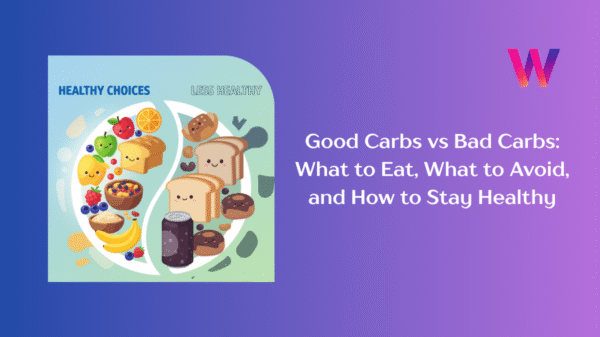The notion of reaching for a banana before bed as a natural remedy for a restless night is a common piece of advice in the realm of wellness. This tropical fruit is often lauded for its rich nutrient content, leading many to believe it holds the key to a more peaceful slumber. But does science truly support this widespread claim, or is it simply another anecdotal suggestion in the vast landscape of sleep aids? In an era where quality sleep is increasingly recognized as fundamental to overall health, the appeal of a simple dietary solution is undeniable. This article aims to delve into the available scientific research, explore the nutritional aspects of bananas, and consider expert opinions to determine the extent to which this having banana bedtime habit can contribute to improved sleep quality.
Table of Contents
The Nutritional Profile of a Sleep Superstar: What Makes Bananas a Potential Bedtime Snack?
Bananas are frequently highlighted as a natural source of several nutrients that are thought to play a role in promoting relaxation and better sleep. Among these, potassium stands out for its function as an electrolyte vital for nerve signaling and muscle contractions. This mineral is crucial for maintaining fluid balance and can potentially aid in muscle relaxation, thereby reducing the occurrence of nighttime muscle cramps that can significantly disrupt sleep. Some evidence suggests that adequate potassium levels are important for overall sleep quality, and low levels have been associated with disturbed sleep, particularly in individuals with hypertension. However, it is important to note that while bananas are a good source of potassium, with a medium banana containing around 422 mg , many studies investigating the benefits of potassium for sleep have used much higher concentrations, often administered through supplements. This suggests that the amount of potassium in a single banana might contribute to muscle relaxation but may not be the sole determinant of significant sleep improvement for most people.
Magnesium is another key nutrient found in bananas that has been consistently linked to sleep benefits. This mineral plays a vital role in numerous bodily functions, including muscle and nerve relaxation and the regulation of the nervous system. Magnesium helps maintain a normal circadian rhythm, the body’s internal clock that governs sleep-wake cycles. Furthermore, research indicates that sufficient magnesium intake can contribute to increased production of melatonin, the hormone that regulates sleep, while also helping to reduce levels of cortisol, the stress hormone that can interfere with sleep. Low levels of magnesium have been associated with difficulties in both falling asleep and staying asleep. A medium-sized banana provides approximately 32-34 mg of magnesium, which constitutes about 8% of the daily recommended intake. The consistent emphasis on magnesium’s role in relaxation and sleep hormone regulation across various sources suggests a potentially stronger link between banana consumption and improved sleep compared to potassium alone.
Bananas also contain tryptophan, an essential amino acid that the body cannot produce on its own and must obtain through dietary sources. Tryptophan is a precursor to serotonin, a neurotransmitter in the brain that plays a crucial role in mood regulation and also acts as a precursor to melatonin, the primary hormone responsible for regulating sleep. Studies have linked the consumption of tryptophan-containing foods with improvements in various aspects of sleep, including increased total sleep time, better sleep efficiency, reduced difficulty in falling asleep, and less nighttime waking. A medium banana contains approximately 11 mg of tryptophan. While bananas do contain this sleep-promoting amino acid, the amount is relatively small when compared to other foods known to be rich in tryptophan, such as turkey or milk. The process of converting tryptophan to serotonin and then to melatonin is complex and influenced by various other factors, suggesting that the tryptophan in a single banana might have a limited direct impact on melatonin levels unless consumed consistently as part of a balanced diet.
Vitamin B6, another nutrient present in bananas, also plays a role in sleep regulation. This vitamin is essential for the synthesis of various neurotransmitters, including serotonin. Research indicates a potential link between adequate Vitamin B6 levels and improved sleep quality and duration, and some studies even suggest it can enhance dream recall. Vitamin B6 acts as a crucial cofactor in the transformation of L-5-hydroxy tryptophan into serotonin. This involvement of Vitamin B6 in serotonin production reinforces the potential connection between banana consumption and better sleep, although the specific contribution from the amount found in a banana should be considered within the context of an individual’s overall dietary intake.
The carbohydrate content of bananas also warrants consideration in the context of sleep. Carbohydrates can potentially enhance the entry of tryptophan into the brain, where it can be converted into serotonin and subsequently melatonin. However, some research suggests that consuming carbohydrate-rich foods in the evening might actually reduce the release of melatonin in certain individuals. Bananas contain natural sugars, which could provide a slight energy boost that might be counterproductive for sleep if consumed too close to bedtime, particularly for those sensitive to sugar intake. This highlights a potential double-edged sword of the carbohydrate content in bananas concerning sleep.
Finally, the dietary fiber present in bananas can contribute to better sleep in several ways. Fiber aids digestion and promotes a feeling of fullness, which can help prevent sleep disturbances caused by nighttime hunger pangs. Some research even suggests an association between consuming fiber-rich foods before bed and spending more time in slow-wave sleep, a deep and restorative phase of sleep. However, for certain individuals, the fiber content in bananas might lead to bloating or digestive discomfort if consumed too close to bedtime, potentially disrupting their sleep.
To summarize the key sleep-related nutrients in a medium banana and their potential benefits:
| Nutrient | Approximate Amount in a Medium Banana | Potential Sleep-Related Benefits |
|---|---|---|
| Potassium | 422 mg | May aid muscle relaxation and prevent nighttime cramps, potentially improving sleep quality, especially for those with hypertension. |
| Magnesium | 32-34 mg | Promotes muscle and nerve relaxation, helps regulate the circadian rhythm, and may increase melatonin production. |
| Tryptophan | 11 mg | A precursor to serotonin and melatonin, which are crucial for regulating sleep and promoting relaxation. |
| Vitamin B6 | 0.4 mg | Involved in the synthesis of serotonin, which plays a key role in sleep regulation. |
| Carbohydrates | 27 g | May aid tryptophan uptake into the brain, but could also cause blood sugar spikes that disrupt sleep in some individuals. |
| Fiber | 3.1 g | Promotes satiety and stable blood sugar, potentially preventing hunger-related sleep disturbances, and may increase deep sleep. |
Decoding the Science: What Do Studies Say About Bananas and Sleep Quality?
While the direct investigation into the effects of banana consumption on sleep is somewhat limited, several studies offer valuable insights into this connection. One notable study, published in the Indonesian Nursing Journal in January 2025, examined the impact of nighttime banana consumption on blood pressure and sleep quality in hypertensive patients. This randomized controlled trial involved 120 participants aged 30-65 years in Malaysia who were randomly assigned to either an intervention group or a control group. The intervention group consumed one medium-sized banana (approximately 120 grams) one hour before bedtime daily for eight weeks, while the control group maintained their usual diet. The study found significant reductions in both systolic and diastolic blood pressure in the banana consumption group compared to the control group. Importantly, the Pittsburgh Sleep Quality Index (PSQI) scores, a measure of sleep quality, also significantly improved in the intervention group, indicating enhanced sleep. This study suggests a positive link between nighttime banana consumption and better sleep, particularly in individuals with hypertension, where the blood pressure-lowering effects of bananas, potentially due to their potassium content , might indirectly contribute to improved sleep.
Another relevant study, published in the Asia Pacific Journal of Clinical Nutrition in September 2024, evaluated the effects of bedtime banana and milk intake on sleep parameters and certain biochemical markers in patients with primary insomnia. This 6-week controlled study involved 21 patients with insomnia who were divided into three groups: banana, milk, and a control group. The banana group consumed one portion of banana (85-100 g) before bedtime, the milk group drank 200 mL of whole-fat milk, and the control group followed their usual diet without any bedtime snack. Subjective sleep quality was assessed using the PSQI, and objective sleep quality was measured using polysomnography. The study revealed that PSQI scores significantly decreased in both the banana and milk groups after the intervention, indicating improved subjective sleep quality compared to the control group. While the milk group also showed a significant increase in total sleep time as measured by polysomnography, both the banana and milk interventions were effective in dealing with insomnia based on the subjective sleep quality assessment. This study provides more direct evidence that consuming a banana before bed can improve subjective sleep quality in individuals experiencing insomnia.
Furthermore, a study mentioned in Gloucestershire Live in December 2024 indicated that older adults with sleep problems who consumed bananas daily for two weeks reported fewer sleep disturbances compared to those who did not eat bananas. This suggests a potential benefit of regular banana consumption for enhancing sleep quality, especially among older adults who are often more susceptible to sleep issues.
Overall, while these studies offer promising insights into the potential benefits of bananas for sleep, it is important to consider their limitations. Some studies have relatively small sample sizes, and others focus on specific populations, such as individuals with hypertension or insomnia. Therefore, while the findings suggest a positive correlation between banana consumption and improved sleep quality in these groups, more extensive research is necessary to definitively confirm these effects in the general population.
Expert Opinions: Weighing in on the Banana-Before-Bed Debate
The question of whether eating bananas before bed can improve sleep has garnered attention from nutritionists and sleep specialists, with many offering their perspectives based on the nutritional profile of the fruit. A common viewpoint among experts is that bananas can be a beneficial bedtime snack due to their significant content of magnesium and potassium, both of which are known to aid in muscle relaxation and promote a sense of calm in the body. Some experts highlight the role of tryptophan present in bananas, emphasizing its potential to boost the production of serotonin and subsequently melatonin, the key hormones involved in regulating sleep.
Several experts suggest that combining bananas with other sleep-friendly foods might enhance their benefits. For instance, pairing sliced banana with a tablespoon of natural nut butter or consuming it with warm milk is often recommended as a way to create a more balanced snack that can further promote relaxation and sleep. The nut butter adds healthy fats and protein, which can contribute to satiety and stable blood sugar levels, while warm milk contains tryptophan, potentially creating a synergistic effect.
However, not all expert opinions are unequivocally positive. Some nutritionists and sleep specialists raise concerns about the potential for blood sugar spikes in certain individuals after consuming bananas, particularly if they are very ripe. These spikes could potentially lead to restless sleep rather than promoting it. Additionally, some experts argue that the concentration of sleep-promoting nutrients like magnesium and tryptophan in a single banana might not be substantial enough to have a significant impact on sleep for everyone. They suggest that while bananas can be a healthy part of the diet, relying solely on them as a sleep aid might not be effective for all individuals.
In essence, expert opinions on eating bananas before bed for better sleep are nuanced. Many acknowledge the potential benefits stemming from the fruit’s nutritional composition, particularly its magnesium, potassium, and tryptophan content. However, they also caution about individual variability in response and the possibility of adverse effects like blood sugar fluctuations in some people. The general consensus seems to be that bananas can be a healthy and potentially sleep-promoting snack for some, especially when incorporated into a balanced evening routine, but they are not a guaranteed solution for sleep problems.
Unraveling the Mechanisms: How Might Bananas Influence Our Sleep Cycles?
The potential for bananas to influence sleep cycles can be attributed to several physiological mechanisms related to their nutritional components. One key mechanism involves the production of melatonin, the hormone that plays a central role in regulating the sleep-wake cycle. Bananas contain tryptophan, an amino acid that serves as a precursor to serotonin, which is then converted into melatonin in the brain. While the amount of tryptophan in a single banana is relatively small , its contribution to the overall pool of available tryptophan could potentially support serotonin and melatonin synthesis, especially when combined with other dietary sources. Interestingly, some studies have detected a small amount of melatonin directly in bananas , and one study even observed increased melatonin levels in individuals after consuming bananas. Furthermore, Vitamin B6, also found in bananas, acts as a crucial coenzyme in the synthesis of serotonin from tryptophan , further supporting the potential of bananas to indirectly influence melatonin production.
Another significant mechanism through which bananas might improve sleep is through muscle relaxation. Bananas are a good source of both potassium and magnesium, two minerals known for their muscle-relaxant properties. Potassium helps maintain the balance of electrolytes in the body and plays a role in regulating muscle contractions. Magnesium is also essential for muscle and nerve function, and adequate levels can help prevent nighttime muscle cramps and restless legs syndrome, both of which can significantly disrupt sleep. The muscle-relaxant properties of these minerals in bananas offer a plausible explanation for why some individuals find relief from nighttime discomfort and improved sleep after consuming them.
The impact of bananas on blood sugar levels is another factor to consider in relation to sleep. Bananas contain carbohydrates, including natural sugars, which can lead to a rise in blood glucose levels. For some individuals, particularly those with blood sugar regulation issues, a rapid spike followed by a crash in blood sugar levels during the night could potentially disrupt sleep. However, bananas also contain fiber, which helps slow down the absorption of glucose, potentially mitigating these sharp blood sugar fluctuations. The glycemic index (GI) of bananas, which indicates how quickly a food raises blood sugar levels, can vary depending on the ripeness of the banana. Less ripe, greener bananas tend to have a lower GI due to their higher resistant starch content, which is digested more slowly.
Beyond these primary mechanisms, bananas might influence sleep through other pathways as well. The resistant starch in bananas acts as a prebiotic, feeding beneficial bacteria in the gut. A healthy gut microbiome has been increasingly linked to various aspects of health, including sleep regulation. Additionally, the nutrient profile of bananas, including magnesium and potassium, may contribute to a reduction in anxiety and stress levels, which are common impediments to restful sleep.
The Flip Side: Potential Counterarguments and Things to Consider
While the potential benefits of eating bananas before bed for better sleep are often highlighted, it is important to consider the limitations and potential drawbacks associated with this practice. One significant factor is individual variation. The way a person’s body metabolizes nutrients and responds to food can differ greatly based on their individual physiology, gut microbiome composition, and overall health status. Therefore, the effects of eating a banana before bed on sleep may vary considerably from one person to another.
Another important consideration is the potential for blood sugar spikes in some individuals. While bananas contain fiber that can help regulate glucose absorption , very ripe bananas have a higher sugar content and glycemic index, which could lead to a more rapid increase in blood sugar levels. For individuals who are sensitive to blood sugar fluctuations, especially those with diabetes or pre-diabetes, consuming a ripe banana close to bedtime might actually disrupt their sleep rather than improve it. Monitoring individual responses to banana consumption before bed is crucial in determining its suitability as a sleep aid.
Interestingly, one source suggests that bananas contain high levels of melatonin, which could potentially disrupt the body’s natural sleep rhythm if consumed in excess right before bed, leading to vivid dreams or nightmares. However, this contradicts the majority of other sources, which indicate that while bananas may contain precursors to melatonin, the actual melatonin content is minimal. This discrepancy highlights the importance of critically evaluating information sources. The prevailing scientific understanding suggests that bananas are not a significant source of melatonin itself.
Digestive discomfort is another potential downside for some individuals. The fiber content in bananas, while generally beneficial, can cause bloating or gas in certain people, particularly if consumed in large amounts or too close to bedtime. This digestive upset could, in turn, interfere with sleep quality. Additionally, while bananas are relatively low in calories , consuming them as an extra snack on top of a full evening meal could contribute to overall caloric intake, which might be a concern for individuals managing their weight.
Finally, the timing of banana consumption before bed might also play a role in its effects on sleep. Some experts recommend eating a banana at least one to two hours before going to sleep to allow for some digestion to occur and to minimize the potential for blood sugar spikes right as one is trying to fall asleep.
Bananas for Better Sleep: Does Ripeness Matter?
The ripeness of a banana can indeed influence its nutrient profile and its potential impact on sleep. Less ripe, greener bananas contain a higher amount of resistant starch and a lower concentration of sugars compared to their riper counterparts. Resistant starch is a type of carbohydrate that is not digested in the small intestine and functions similarly to fiber. This means that less ripe bananas might lead to a more gradual increase in blood sugar levels, which could be beneficial for individuals concerned about blood sugar spikes affecting their sleep.
As bananas ripen, the resistant starch is converted into natural sugars, resulting in a sweeter taste and a higher glycemic index. While riper bananas are easier to digest, their higher sugar content might be less ideal for consumption right before bed, especially for those sensitive to blood sugar fluctuations. Interestingly, a study mentioned earlier indicated that overripe bananas have the highest concentration of melatonin. However, it is important to remember that the overall melatonin content in bananas is still likely to be minimal compared to other sources like tart cherries. Therefore, while an overripe banana might offer a slightly higher amount of this sleep hormone, the practical significance of this increase for improving sleep may be limited.
In summary, the ripeness of a banana can influence its effects on sleep. For individuals concerned about blood sugar spikes, opting for a slightly less ripe banana might be a better choice due to its lower sugar content and slower digestion. Conversely, while overripe bananas might contain slightly more melatonin, the overall impact on sleep is likely more attributable to other nutrients like magnesium and potassium, regardless of ripeness.
Conclusion: Should You Go Bananas Before Bed? A Balanced Perspective
The question of whether eating bananas before bed leads to better sleep is multifaceted. While bananas contain several nutrients that are known to play a role in sleep regulation, including magnesium, potassium, tryptophan, and Vitamin B6, the direct scientific evidence supporting the claim that they significantly improve sleep for everyone remains limited. The two identified studies that specifically investigated banana consumption and sleep showed positive effects on sleep quality in specific populations: hypertensive patients and individuals with insomnia. This suggests that certain groups of people might indeed experience benefits from this bedtime snack.
The potential mechanisms by which bananas could aid sleep are plausible. The magnesium and potassium content can contribute to muscle relaxation, potentially preventing nighttime cramps and promoting overall comfort. Additionally, the tryptophan in bananas may play a role in the production of serotonin and melatonin, key hormones in the sleep-wake cycle, although the extent of this contribution from a single banana is likely modest.
However, it is crucial to acknowledge the potential drawbacks and individual variations. Some individuals might experience blood sugar spikes after consuming bananas, especially if they are very ripe, which could disrupt sleep. Digestive discomfort due to the fiber content is also a possibility for some. Therefore, the effectiveness of eating bananas before bed as a sleep aid can vary significantly from person to person.
For those interested in trying this natural approach, some practical recommendations can be considered. Eating a banana an hour or two before bedtime as part of a balanced evening routine might be more beneficial than consuming it right before lying down. Pairing the banana with other sleep-promoting foods like a small handful of nuts or a serving of yogurt could also enhance its potential benefits by providing a combination of healthy fats, protein, and other sleep-supportive nutrients. It is essential to be mindful of individual reactions and adjust dietary habits accordingly. For persistent or severe sleep issues, consulting with a healthcare professional is always recommended to identify underlying causes and explore appropriate treatment options.
Ultimately, while bananas might not be a universal cure for sleepless nights, they can be a healthy and potentially beneficial bedtime snack for many individuals, particularly when considered within the context of an overall balanced diet and healthy lifestyle habits. Their nutritional profile offers several components that could contribute to relaxation and better sleep, but individual responses and overall dietary patterns are key factors in determining their effectiveness.












